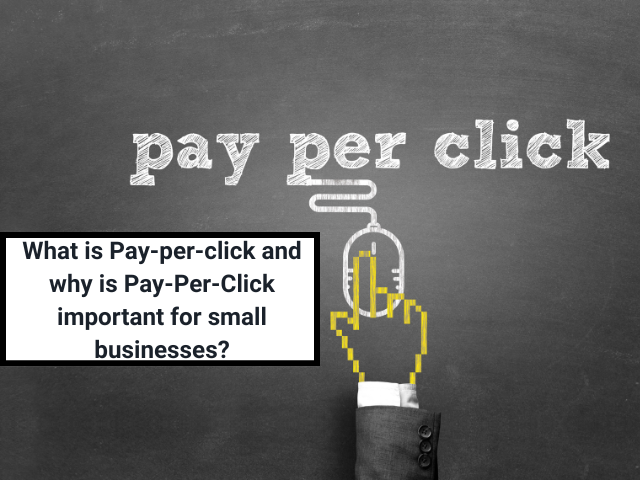An ultimate guide on Python: Why Learn Python? 10 Reasons to Start Programming With Python
An ultimate guide on Python: Why Learn Python? 10 Reasons to Start Programming With Python Python is a popular high-level programming language widely used for various purposes, including web development, data analysis, artificial intelligence, and automation. Known for its simplicity and readability, Python is an excellent choice for beginners and experienced programmers alike. One of Python’s key features is its elegant syntax, which emphasises code readability and reduces the cost of program maintenance. Python uses indentation to define code blocks, eliminating the need for braces or other explicit delimiters. This makes Python code easy to understand and write. Python supports a vast array of libraries and frameworks that extend its capabilities. The Python Standard Library provides a wide range of modules for tasks such as file handling, networking, and regular expressions. Additionally, Python’s extensive ecosystem includes popular libraries like NumPy for numerical computing, Pandas for data manipulation, and TensorFlow for machine learning. Python’s dynamic typing allows variables to be assigned without declaring their type explicitly, making it highly flexible. It also supports multiple programming paradigms, including procedural, object-oriented, and functional programming. This versatility enables developers to choose the most suitable approach for their projects. Furthermore, Python boasts a large and active community that contributes to its growth and development. This community offers numerous online resources, forums, and tutorials, making it easy to find help and guidance when needed. To start coding in Python, you’ll need to install the Python interpreter, which is available for major operating systems. Python code is typically written in a text editor and saved with a `.py` extension. The interpreter executes the code line by line, producing the desired output. Basic Python syntax includes variable assignments, arithmetic operations, conditional statements (if-else), loops (for and while), and functions. These building blocks allow you to perform a wide range of tasks, from simple calculations to complex algorithms. Python’s simplicity and versatility, combined with its powerful libraries and supportive community, make it an excellent choice for beginners and professionals alike. Whether you’re interested in web development, data science, or automation, Python provides the tools and resources necessary to bring your ideas to life. 10 Reasons to Start Programming With Python There are several compelling reasons to learn Python: 1. Easy to Learn: Python has a clean and readable syntax, making it easy for beginners to understand and write code. Its simplicity allows you to focus on learning programming concepts rather than getting bogged down by complex syntax. 2. Versatile and Powerful: Python is a versatile language that can be used for a wide range of applications, including web development, data analysis, scientific computing, machine learning, artificial intelligence, automation, and more. Its extensive standard library and third-party packages make it a powerful tool for various tasks. 3. Strong Community and Support: Python has a large and active community of developers who are willing to help and share their knowledge. You can find abundant resources, tutorials, forums, and online communities where you can ask questions, seek guidance, and collaborate with others. 4. Great for Prototyping and Rapid Development: Python’s simplicity and expressiveness make it an excellent choice for prototyping and developing applications quickly. You can turn your ideas into functional programs in less time, allowing for faster iterations and development cycles. 5. Readability and Maintainability: Python’s syntax emphasizes code readability and maintainability. Its use of indentation for code blocks improves code organization and makes it easier to understand and modify, especially when working on larger projects or collaborating with others. 6. Abundance of Libraries and Resources: Python has a rich set of libraries and frameworks that provide pre-built functionalities, making development faster and easier. Libraries like NumPy, Pandas, Matplotlib, and TensorFlow are widely used in various domains and significantly aid data analysis, visualisation, and machine learning tasks. Additionally, Python has a vast community that actively contributes to its development and provides abundant resources, tutorials, and support. 7. Platform Independence Python is available on multiple platforms, including Windows, macOS, Linux, and even mobile platforms. This allows you to develop applications that can run seamlessly across different operating systems without extensive modifications. 8. Integration and Extensibility: Python seamlessly integrates with other languages and technologies, allowing you to leverage existing code and tools. You can easily incorporate Python into existing projects, interact with databases, call external APIs, or even write Python extensions in languages like C or C++ for performance-critical tasks. 9. Career Opportunities: Python is widely used in various industries, and its demand continues to grow. By learning Python, you open up opportunities for careers in web development, data science, machine learning, artificial intelligence, automation, and more. Python skills are highly valued by employers, making it a valuable asset in the job market. 10. Fun and Engaging: Programming in Python can be fun and engaging. Its simplicity, versatility, and the ability to see your code produce results quickly can make the learning process enjoyable. Python’s readability and clean syntax also contribute to a positive programming experience. Conclusion In conclusion, starting your programming journey with Python offers numerous advantages, including its ease of learning, versatility, strong community support, rapid development capabilities, readability, extensive library ecosystem, platform independence, integration possibilities, career opportunities, and the enjoyment it brings to programming. Ready to get started? An ultimate guide on Python: Why Learn Python? 10 Reasons to Start Programming With Python Register for a free demo. Get more details regarding Powerpoint Phone no. 9988-500-936 Address SCF 22, First floor, GTB Market, Khanna Website www.microwavecomputer.com Opening Hours 08:30 am – 06:00 pm 10 Reasons Why PHP is Still Relevant in 2023 What is MS Excel and how important is excel for businesses? What is Pay-per-click and why is Pay-Per-Click important for small businesses? What are coding classes for kids? 10 Reasons To Be a Software Developer Leave a Reply Cancel Reply Logged in as admin. Edit your profile. Log out? Required fields are marked * Message*




